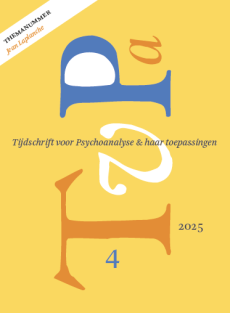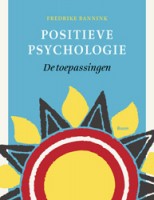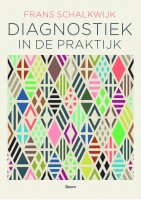Over de effectiviteit van kortdurende psychoanalytische therapie
Summary
The effectiveness of short-term psychoanalytic psychotherapy
In recent decades the effectiveness of short-term psychoanalytic psychotherapy (STPP) has frequently been researched. The evidence-based status of STPP remains, however, controversial. In this article the existing empirical evidence for STPP in various psychiatric disorders is summarized in an overview of published meta-analyses from between 1992 and 2008. Effectiveness is expressed in terms of effect sizes (ESs) and remission rates. The nine meta-analyses presented together cover ninety original trials. The results of the reviews are consistent. The pre-post effectiveness of STPP is moderate to large and statistically significant. STPP does not seem to differ significantly from other forms of short-term psychotherapy. Although more research is necessary, it can be cautiously concluded that stpp is empirically supported and has earned a place in evidence-based psychiatry.
Literatuur
- De met een * gemarkeerde referenties betreffen de meta-analyses waarop het artikel is gebaseerd.
- *Abbass, A.A., Hancock J.T., Henderson, J. & Kisely, S. (2007). Short-term psychodynamic psychotherapies for common mental disorders. The Cochrane Library, issue 3.
- Abbass, A., Sheldron, A., Gyra, J. & Kalpin, A. (2008). Intensive short-term dynamic psychotherapy of patients with dsm-iv personality disorders A randomized controlled trial. Journal of Nervous and Mental Disease, 196, 211-216.
- Alstrom, J.E., Nordlund, C.L., Persson, G. e. a. (1984a). Effects of four treatment methods on social fobia patients not suitable for insight oriented psychotherapy. Acta Psychiatrica Scandinavica, 70, 97-100.
- Alstrom, J.E., Nordlund, C.L., Persson, G. e. a. (1984b). Effects of four treatment methods on agoraphobic women not suitable for insight oriented psychotherapy. Acta Psychiatrica Scandinavica, 70, 1-17.
- *Anderson, E.M. & Lambert, M.J. (1995). Short-term dynamically oriented psychotherapy: a review and metaanalysis. Clinical Psychology Review, 15, 503-514.
- Arrindell, W.A. & Ettema, J.M.M. (1986). SCL-D-90 Handleiding bij een multidimensionele psychopathologieindicator. Lisse: Swets & Zeitlinger.
- Balint, M. (1952a). Primary love and psychoanalytic technique. Londen: Hogarth Press.
- Balint, M. (1952b). New beginning and the paranoid and the depressive syndromes. International Journal of Psycho-Analysis, 33, 214-224.
- Balint, M. (1952c). On love and hate. International Journal of Psycho-Analysis, 33, 355-362.
- Blackburn, I.M. & Moore, R.G. (1997). Controlled acute and follow-up trial of cognitive therapy and pharmacotherapy in out-patients with recurrent depression. British Journal of Psychiatry, 171, 328-334.
- Blom, M. (2007). Combination treatments for depressed outpatients. Proefschrift, Vrije Universiteit, Amsterdam.
- Blom, M.B.J., Jonker, K., Haffmans, P.M.J. e. a. (2000). Combinatie van medicatie en psychotherapie bij depressie: een overzicht. Tijdschrift voor Psychiatrie, 42, 99-407.
- Bowlby, J. (1969). Attachment and loss Attachment. New York: Basic Books.
- Chambless, D.L. & Hollon, S.D. (1998). Defining empirically supported psychotherapies. Journal of Consulting and Clinical Psychology, 66, 7-18.
- Clarkin, J.F. & Levy, K.N. (2004). The influence of client variables on psychotherapy. In M.J. Lambert (red.), Bergin and Garfields Handbook of psychotherapy and behavior change (p. 194-226). New York: John Wiley & Sons.
- Cohen, J. (1988). Statistical power analysis for behavioural sciences. Hillsdale NJ: Lawrence Erlbaum.
- Conte, H.R., Plutchik, R., Wild, K. e. a. (1986). Combined psychotherapy and pharmacotherapy for depression. Archives of General Psychiatry, 43, 471-479.
- Creed, F., Fernandes, L., Guthrie, E. e. a. (2003). The cost effectiveness of psychotherapy and paroxetine for severe irritable bowel syndrome. Gastroenterology, 124, 303-17.
- *Crits-Christoph, P. (1992). The efficacy of brief dynamic psychotherapy: a meta-analysis. American Journal of Psychiatry, 149, 151-158.
- Cuijpers, P. & Dekker, J. (2005). Psychological treatment for depression: a systematic review of meta-analyses. Nederlands Tijdschrift voor Geneeskunde, 149, 1892-1897.
- *Cuijpers, P., Straten, A. van, Warmerdam, L. & Andersson, G. (2008). Psychological treatment of depression: a meta-analytic database of randomized studies. BMC Psychiatry, 8, 36.
- Davanloo (1980). Short-term dynamic psychotherapy. New York: J. Aronson.
- Diener, M.J., Hilsenroth, M.J. & Weinberg, J. (2007). Therapist affect focus and patient outcomes in psychodynamic psychotherapy: a meta-analysis. American Journal of Psychiatry, 164, 936-941.
- Dimascio, A., Weissman, M.M., Prusoff, B. A. e. a. (1979). Differential symptom reduction by drugs and psychotherapy in acute depression. Archives of General Psychiatry, 36, 1450-1456.
- *Driessen, E., Dekker, J., Maat, S. de, Jonghe, F. de e. a. (ingediend). The efficacy of brief dynamic therapy for depression: a meta-analysis.
- Elkin, I., Shea, M.T., Watkins, J.T. e. a. (1989). National Institute of Mental Health Treatment of Depression Collaborative Research Program: general effectiveness of treatments. Archives of General Psychiatry, 46, 971-82.
- Freud, S. (1915). Triebe und Triebschicksale. In Studienausgabe 3 (p. 81- 102). Frankfurt am Main: S. Fischer Verlag.
- Freud, S. (1923). Het Ik en het Es. In Werken 8 (p. 380-420). Amsterdam: Boom.
- Friedman, M.A., Detweiler-Bedell, J.B., Leventhal, H.E. e. a. (2004). Combined psychotherapy and pharmacotherapy for the treatment of major depressive disorder. Clinical Psychology Science and Practice, 11, 47-68.
- Guthrie, E., Moorey, J., Margison, F. e. a. (1999). Cost-effectiveness of brief psychodynamic-interpersonal therapy in high utilizers of psychiatric services. Archives of General Psychiatry, 56, 519-26.
- Guy, W. (1976). ECDEU Assessment Manual for Psychopharmacology. Revised DHEW pub.(adm). Rockville MD: National Institute for Mental Health.
- Hamilton, J., Guthrie, E., Creed, F. e. a. (2000). A randomized controlled trial of psychotherapy in patients with chronic functional dyspepsia. Gastroenterology, 119, 661-669.
- Hamilton, M. (1967). Development of a rating scale for primary depressive illness. British Journal of Social and Clinical Psychology, 6, 278-296.
- Jarret, R.B., Schaffer, M., McIntire, D. e. a. (1999). Treatment of atypical depression with cognitive therapy of phenelzine. Archives of General Psychiatry, 56, 431-437.
- Jonghe, F. de (1994). Psychoanalytic supportive psychotherapy. Journal of the American Psychoanalytic Association, 42, 421-446.
- Jonghe, F. de (2005). Kort en krachtig Kortdurende Psychoanalytische Steungevende Psychotherapie. Amsterdam: Benecke N. I.
- Keller, M.B., McCullough, J.P., Klein, D.N. e. a. (2000). A comparison of Nefazodone, the Cognitive Behavioral- Analysis System of Psychotherapy and their combination for the treatment of chronic depression. The New England Journal of Medicine, 342, 1462-1470.
- Klein, M. (1930). The psychotherapy of the psychoses. Contributions to psychoanalysis 1921-1945 (p. 251-253). Londen: Hogarth Press.
- Klein, M. (1934). A contribution to the psychogenesis of manic-depressive states, In Contributions to psycho-analysis 1921-1945 (p. 282-310). Londen: Hogarth Press.
- Kohut, H. (1971). The analysis of the self. New York: International Universities Press.
- Kohut, H. (1977). The restoration of the self. New York: International Universities Press.
- *Leichsenring, F. (2001). Comparative effects of short-term psychodynamic psychotherapy and cognitive-behavioral therapy in depression: a meta-analytic approach. Clinical Psychology Review, 21, 401-419.
- *Leichsenring, F. & Leibing, E. (2003). The effectiveness of Psychodynamic Therapy and Cognitive Behavior Therapy in the treatment of personality disorders: a meta-analysis. American Journal of Psychiatry, 160, 1223-1232.
- *Leichsenring, F., Rabung, S. & Leibing, E. (2004). The efficacy of short-term psychodynamic psychotherapy in specific psychiatric disorders: a meta-analysis. Archives of General Psychiatry, 61, 1208-1216.
- Lipsey, M W., Wilson, D.B. (1993). The efficacy of psychological, educational, and behavioural treatment: confirmation of meta-analyses. American Psychologist, 48, 1181-1209.
- Maat, S.C.M. de, Dekker, J., Schoevers, R. & Jonghe, F. de (2006). Psychotherapy versus pharmacotherapy in the treatment of depression a metaanalysis. Psychotherapy Research, 16, 562-572.
- *Maat, S. de, Dekker, J., Schoevers, R. e. a. (2007a). Short psychodynamic supportive psychotherapy, antidepressants and their combination in the treatment of major depression: A megaanalysis based on three randomised controlled trials. Depression and Anxiety, 25, 565-574.
- Maat, S.C.M. de, Dekker, J., Schoevers, R. & Jonghe, F. de (2007b). Psychotherapy versus combined therapy; a meta-analysis. European Psychiatry, 22, 1-8.
- Maat, S., de, Dekker, J., van, H. e. a. (ingediend). Empirical support for short-term psychoanalytic psychotherapy An overview of meta-analyses.
- Malan, D.H. (1963). A study of brief psychotherapy. Londen: Tavistock Publications.
- Mann, J. (1973). The limited psychotherapy. Cambridge MA: Harvard University Press.
- Monsen, K. & Monsen, J. T. (2000). Chronic pain and psychodynamic body therapy: a controlled outcome study. Psychotherapy: Theory, Research, Practice, Training, 37, 257-69.
- Nederlandse Vereniging voor Psychiatrie (2007). Rapport complicatieregistratie voor psychiaters. Toegankelijk via: www.nvvp.net.
- Newton-Howes, G., Tyrer, P. & Johnson, T. (2006). Personality disorders and the outcome of depression: meta-analysis of published studies. British Journal of Psychiatry, 188, 13-20.
- Pampallona, S., Bollini, P., Tibaldi, G. e. a. (2004). Combined pharmacotherapy and psychological treatment for depression. A systematic review. Archives of General Psychiatry, 61, 714-719.
- PDM Task Force (2006). Psychodynamic Diagnostic Manual. Silver Spring MD: Alliance of Psychoanalytic Organizations.
- Pollack, J. & Horner, A. (1985). Brief adaptation-oriented psychotherapy. In A. Winston (red.), Clinical and research issues in short-time dynamic psychotherapy. Washington DC: American Psychiatric Press.
- Segal, Z., Vincent, P. & Levitt, A. (2002). Efficacy of combined, sequential and crossover psychotherapy and pharmacotherapy in improving outcomes in depression. Journal Psychiatry & Neuroscience, 27, 281-290.
- Sifneos, P.E. (1979). Short-term dynamic psychotherapy: evaluation and technique. New York: Plenum Medical.
- Smith, M.L. & Glass, G.V. (1977). Metaanalysis of psychotherapy outcome studies. American Psychologist, 32, 752-760.
- Smith, M.L., Glass, G.V. & Miller, T.I. (1980). The benefits of psychotherapy. Baltimore MD: Johns Hopkins University Press.
- Strupp, H., & Binder, J.L. (1984). Psychotherapy in a new key. New York: Basic Books.
- Thase, M.E., Greenhouse, J.B., Frank, E. e. a. (1997). Treatment of major depression with psychotherapy or psychotherapy-pharmacotherapy combinations. Archives of General Psychiatry, 54, 1009-1015.
- Turner, E.H., Matthews, A.M., Linardatos, E. e. a. (2008). Selective publication of antidepressant trials and its influence on apparent efficacy. New England Journal of Medicine, 358, 252-260.
- Tuynman-Qua, H., Jonghe, F. de (1992). Quality of Life Depressie Schaal. Houten: Ibero.
- Van, H.I., Hendriksen, M., Schoevers, R. e. a. (2008). Predictive value of object relationships for therapeutic alliance and outcome in psychotherapy for depression: an explorative study. Journal of Nervous and Mental Disease. (in druk).
- Wexler, B.E. & Cicchetti, D.V. (1992). The outpatient treatment of depression Implications of outcome research for clinical practice. The Journal of Nervous and Mental Disease, 180, 277-286.
 © 2009-2026 Uitgeverij Boom Amsterdam
© 2009-2026 Uitgeverij Boom Amsterdam
ISSN 1382-516x
De artikelen uit de (online)tijdschriften van Uitgeverij Boom zijn auteursrechtelijk beschermd. U kunt er natuurlijk uit citeren (voorzien van een bronvermelding) maar voor reproductie in welke vorm dan ook moet toestemming aan de uitgever worden gevraagd:
Behoudens de in of krachtens de Auteurswet van 1912 gestelde uitzonderingen mag niets uit deze uitgave worden verveelvoudigd, opgeslagen in een geautomatiseerd gegevensbestand, of openbaar gemaakt, in enige vorm of op enige wijze, hetzij elektronisch, mechanisch door fotokopieën, opnamen of enig andere manier, zonder voorafgaande schriftelijke toestemming van de uitgever.
Voor zover het maken van kopieën uit deze uitgave is toegestaan op grond van artikelen 16h t/m 16m Auteurswet 1912 jo. Besluit van 27 november 2002, Stb 575, dient men de daarvoor wettelijk verschuldigde vergoeding te voldoen aan de Stichting Reprorecht te Hoofddorp (postbus 3060, 2130 KB, www.reprorecht.nl) of contact op te nemen met de uitgever voor het treffen van een rechtstreekse regeling in de zin van art. 16l, vijfde lid, Auteurswet 1912.
Voor het overnemen van gedeelte(n) uit deze uitgave in bloemlezingen, readers en andere compilatiewerken (artikel 16, Auteurswet 1912) kan men zich wenden tot de Stichting PRO (Stichting Publicatie- en Reproductierechten, postbus 3060, 2130 KB Hoofddorp, www.cedar.nl/pro).
No part of this book may be reproduced in any way whatsoever without the written permission of the publisher.
Nieuwsbrief Boom Psychologie
Meld u nu aan en ontvang maandelijks de Boom Psychologie nieuwsbrief met aantrekkelijke aanbiedingen en de nieuwe uitgaven.
Aanmelden


